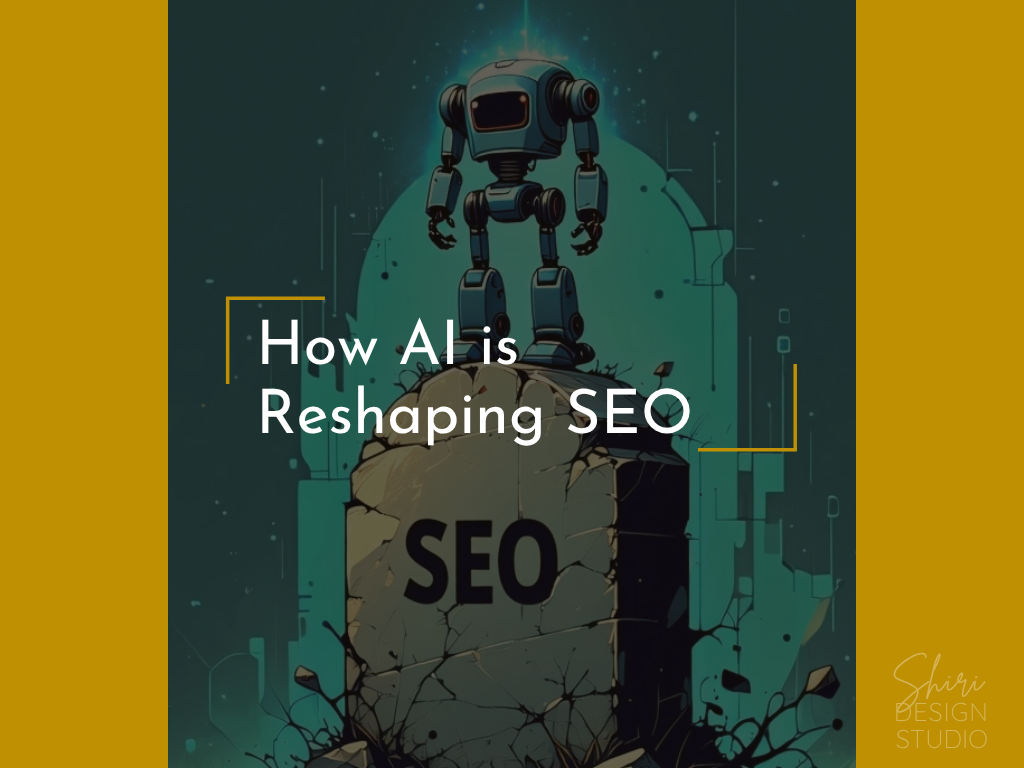How AI is Reshaping SEO: Why Ranking #1 Doesn’t Matter Anymore

The search landscape is evolving—fast. With the rise of generative AI, traditional SEO is no longer just about rankings—it's about relevance, authority, and visibility in AI-generated answers. AI-powered tools like ChatGPT, Google's Search Generative Experience (SGE), and Perplexity are reshaping how people find and consume information. In many cases, users are getting what they need without ever clicking a link.
So where does that leave SEO? It’s not dead—but it is evolving. Marketing teams must pivot focus and rethink how they create and position content to ensure their brand remains visible in this new AI-first world.
From Ranking to Surfacing
In the past, SEO was about ranking on page one. Today, it’s about being referenced or quoted by AI systems that synthesize content from the web.
Pivot:
- Focus on clear, authoritative content that’s easy for AI to parse.
- Include structured data, like schema markup.
- Publish original research and insights—AI tools love citing unique, high-quality sources.
Brand Visibility Without Clicks
Even when AI tools don’t send users to your site, your brand can gain exposure simply by being mentioned.
Pivot:
- Prioritize topical authority so your brand becomes a go-to expert in your niche.
- Use consistent branding and bylines to reinforce identity.
- Contribute to reputable, crawlable sources (e.g., Wikipedia, Reddit, guest posts).
Intent is More Conversational
Users are now asking natural-language questions and expecting smart, context-rich answers. Your content must adapt.
Pivot:
- Build out FAQs, glossary pages, and “what is” content.
- Include long-tail conversational phrases.
- Create pillar content with internal linking to support full-topic coverage.
How to Show Up in AI Results: Practical Tips
1. Use Schema Markup Extensively
AI models love structured content. Implement schema types like:
ArticleFAQPageHowToProductOrganization
2. Write Like You’re Explaining to a Smart Human
Generative AI thrives on content that’s:
- Clear and well-structured
- Rich with definitions and context
- Free of jargon unless explained
3. Be Present in Public, Credible Sources
AI tools often pull from:
- Wikipedia
- High-ranking blogs
- News outlets
- Government and educational domains
- Community forums (e.g., Reddit, Stack Overflow)
4. Build Topical Authority
AI rewards depth, not just keywords. Cover topics fully, link related pages, and show you're an expert.
5. Use Your Experts
Quote your internal subject matter experts (SMEs). Add bios. AI prefers:
- Author credentials
- Clear company expertise
- Trustworthy sources
6. Monitor AI Mentions
Use tools like:
- ChatGPT with Browsing
- Bing Copilot
- Perplexity.ai
- Authoritas, Dashword, or other AI SEO trackers
Rethinking SEO: A Strategic Shift
Marketing teams must embrace this shift not as a threat, but as an evolution. SEO is no longer just a battle for SERP positions—it’s a quest for credibility in an AI-driven content economy.
New SEO Priorities:
| Old Focus | New Focus |
|---|---|
| Keyword Density | Topical Authority |
| Backlinks | Content Credibility & Source Trust |
| Pageviews & CTR | Mentions in AI Answers |
| Meta Tags | Structured Data & Formatting |
| Traffic Volume | Qualified Exposure & Brand Lift |
Final Thought
SEO in a world with AI is about being the best source in the room. Create content that educates, informs, and builds trust—both with humans and the machines they’re increasingly using to find answers.
You’re not optimizing for search engines anymore. You’re optimizing for thinking engines.
